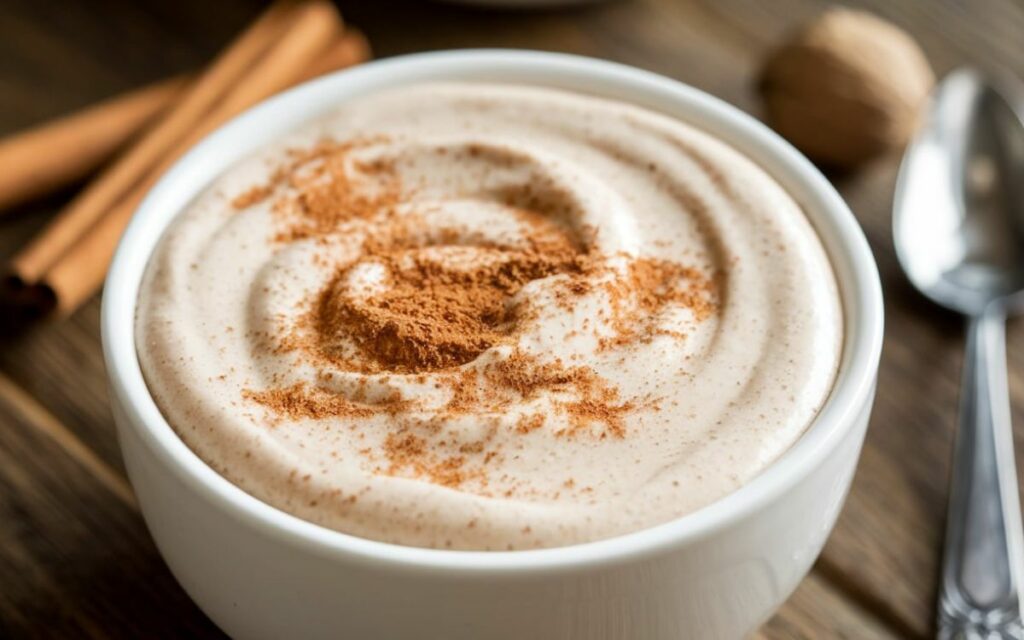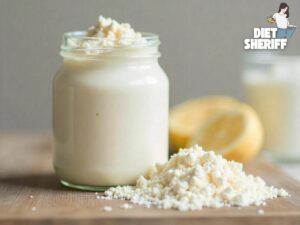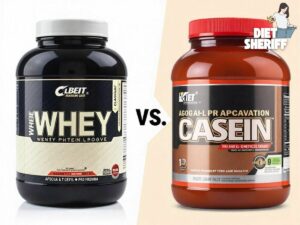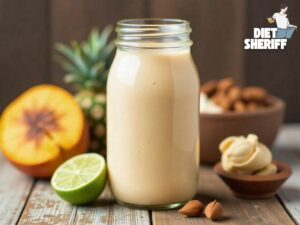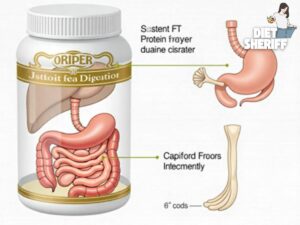Have you ever wondered, “Does protein powder have lactose?” It’s a common question that many people have, and it’s important to understand the answer, especially if you’re lactose intolerant.
In this article, I’ll provide you with valuable information on the different types of protein powder, their lactose content, and how to choose the right one for your dietary needs.
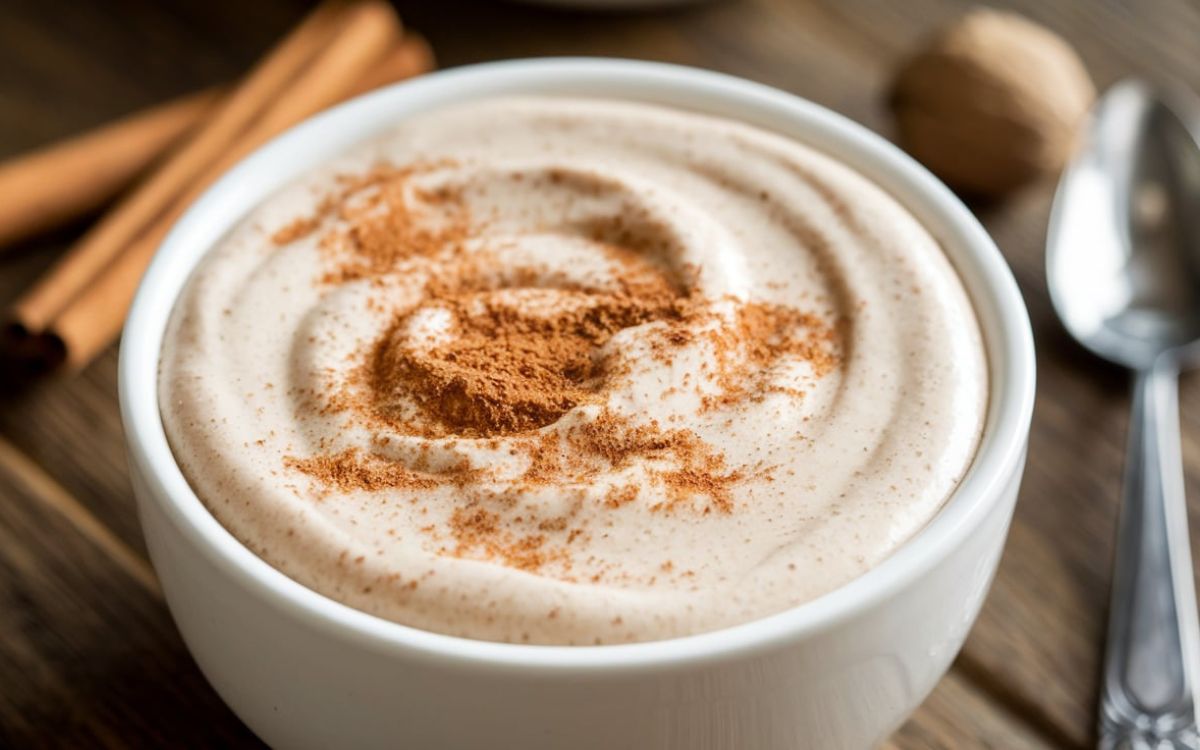
Understanding the Basics: What is Lactose?
Before we dive into the protein powder aspect, let’s quickly cover what lactose is. Lactose is a type of natural sugar found in dairy products, such as milk, cheese, and yogurt. It’s a disaccharide, which means it’s composed of two smaller sugar molecules: glucose and galactose.
Lactose intolerance is a condition where the body is unable to digest lactose effectively, leading to uncomfortable symptoms like bloating, gas, diarrhea, and abdominal pain. People with lactose intolerance often need to limit or avoid dairy products to manage their symptoms.
Related Articles: Can You Put Protein Powder in Hot Drinks? The Ultimate Guide
Does Protein Powder Have Lactose? Why is This a Big Concern?
You may be curious about why might lactose intolerance influence someone’s choice of protein powder. Actually, lactose intolerance is an important consideration when choosing a protein powder. For individuals with the symptoms of lactose intolerance, consuming protein powders can lead to uncomfortable digestive issues like bloating, gas, and diarrhoea.
Whey and casein protein powders are derived from dairy and naturally contain lactose. However, there are alternatives like whey isolate, which has had the lactose removed, and plant-based protein powders that are inherently lactose-free.
Choosing a lactose-free protein powder allows those with lactose intolerance to get the benefits of supplemental protein without the negative side effects. This expands their dietary options and ensures they can incorporate protein powder without digestive distress.
Finding a protein powder that suits their lactose sensitivity is crucial for lactose-intolerant individuals.
Related Articles: Can You Put Protein Powder in Smoothies for Enhanced Nutrition?
Does Protein Powder Have Lactose? A Detailed Exploration
The answer to this question is not a simple yes or no. It really depends on the type of protein powder you’re using. Here’s a closer look at the various types of protein powder and their lactose content:
Whey Protein Powder
Whey protein is a popular choice among fitness enthusiasts and bodybuilders. It’s derived from the liquid that’s left over after milk has been curdled and strained during the cheese-making process. Whey protein does contain some lactose, but the amount can vary depending on the processing method.
- Whey Protein Isolate (WPI): This type of whey protein undergoes additional processing to remove more of the lactose, making it a great option for those with lactose intolerance. WPI typically contains less than 1g of lactose per serving.
- Whey Protein Concentrate (WPC): Whey protein concentrate contains a higher amount of lactose than WPI, usually between 1-5g per serving. This is because the lactose hasn’t been removed as thoroughly during the manufacturing process.
- Related Articles: Can You Put Protein Powder in Yogurt? A Complete Guide
Casein Protein Powder
Casein protein is another dairy-based protein source that’s often used in protein supplements. Like whey, casein is derived from milk, and it can also contain varying amounts of lactose depending on the processing method.
- Micellar Casein: This form of casein protein undergoes a gentle filtration process that helps remove more of the lactose, making it a better choice for those with lactose intolerance. Micellar casein typically contains less than 1g of lactose per serving.
- Calcium Caseinate: This type of casein protein is further processed to remove even more of the lactose, resulting in a product that’s virtually lactose-free, with less than 0.1g of lactose per serving.
Plant-Based Protein Powders
If you’re looking for a lactose-free protein powder option, you might want to consider plant-based alternatives. These include:
- Soy Protein Powder: Soy protein is derived from soybeans and is naturally lactose-free.
- Pea Protein Powder: Pea protein is extracted from yellow split peas and is also lactose-free.
- Hemp Protein Powder: Hemp protein is made from the seeds of the hemp plant and does not contain any lactose.
- Rice Protein Powder: Rice protein is a plant-based option that’s free of lactose.
It’s important to note that some protein powder brands may blend different protein sources, such as whey and casein, or even add lactose-containing ingredients for flavor or texture. In these cases, the lactose content may be higher.
Always check the nutrition label and ingredient list to ensure the protein powder you choose aligns with your dietary needs.
Related Articles: Best Protein Powder for Lactose Intolerance: Top Choices Reviewed
How to Choose a Lactose-Free Protein Powder?
When selecting a protein powder, it’s important to pay attention to the ingredient list and nutritional information. So, how do you figure out what types of protein powder are lactose-free? Well, here are some tips to help you choose a lactose-free protein powder:
- Check the Nutrition Facts Label: Look for the “Total Carbohydrates” and “Sugars” sections. If the product contains less than 1g of sugar per serving, it’s a good indication that the powder is low in lactose.
- Look for Lactose-Free or Dairy-Free Labeling: Many manufacturers will clearly state on the packaging if their protein powder is lactose-free or dairy-free, making it easier for you to identify the right product.
- Opt for Plant-Based Protein Powders: As mentioned earlier, plant-based protein powders like soy, pea, hemp, and rice are naturally lactose-free, making them a great choice for those with lactose intolerance.
- Consider Whey Protein Isolate or Micellar Casein: These forms of dairy-based protein powders have undergone additional processing to remove more of the lactose, making them suitable for people with lactose sensitivities.
- Read the Ingredient List: Scan the ingredient list for any dairy-derived ingredients like milk, whey, casein, or milk protein. If you see these, the protein powder may not be suitable for those with lactose intolerance diet sheriff.
What are the Benefits of Lactose-Free Protein Powder?
For individuals with lactose intolerance or those who prefer to limit their lactose intake, choosing a lactose-free protein powder can provide several benefits:
- Improved Digestibility: Lactose-free protein powders are easier to digest, reducing the risk of gastrointestinal discomfort, such as bloating, gas, and diarrhea, which can occur with lactose-containing supplements.
- Expanded Dietary Options: Lactose-free protein powders allow individuals with lactose intolerance to enjoy the benefits of protein supplementation without the limitations posed by dairy-based products.
- Versatility in Recipes: Lactose-free protein powders can be easily incorporated into a wide range of recipes, from smoothies and shakes to baked goods and savory dishes, without concerns about lactose-related reactions.
- Enhanced Nutrient Absorption: The absence of lactose can potentially improve the absorption of other nutrients in the protein powder, ensuring your body can effectively utilize the protein and other beneficial compounds.
Remember, everyone’s body is different, so it’s important to pay attention to how your body reacts to different protein powders. If you experience any uncomfortable symptoms, it’s best to discontinue use and try a different option.
Now that you have a comprehensive understanding of the concern – does protein powder have lactose, you can make an informed decision and find the perfect supplement.
Explore Also:
Creativehouseblog
Gigasecurehome
Mycleanseplan
Does Protein Powder Have Lactose – FAQs
How do I know if I’m lactose intolerant?
If you experience bloating, gas, diarrhea, stomach cramps, nausea, or vomiting after consuming dairy products, you may be lactose intolerant. It’s best to consult a doctor or a registered dietitian for a proper diagnosis.
How can I tell if a protein powder is lactose-free?
To determine if a protein powder is lactose-free, check the nutrition label and ingredient list. Look for protein powders that specifically state they are “lactose-free” or have less than 1g of lactose per serving. Avoid powders that contain milk, milk solids, or other lactose-containing ingredients.
Are there any other ingredients in protein powder I should be aware of?
Besides lactose, some protein powders may contain added ingredients like artificial sweeteners, flavors, thickeners, and preservatives. If you have any sensitivities or allergies, be sure to read the label carefully and choose a protein powder that meets your needs.
Can I make my own lactose-free protein powder at home?
It’s possible to make your own protein powder at home using ingredients like nuts, seeds, and legumes. However, it’s important to ensure that the ingredients you use are properly processed and blended to create a smooth and digestible powder.
Can I still build muscle with a lactose-free protein powder?
Yes, you can absolutely build muscle with a lactose-free protein powder. The key is to ensure you’re getting a high-quality, complete protein source, regardless of whether it’s dairy-based or plant-based.

